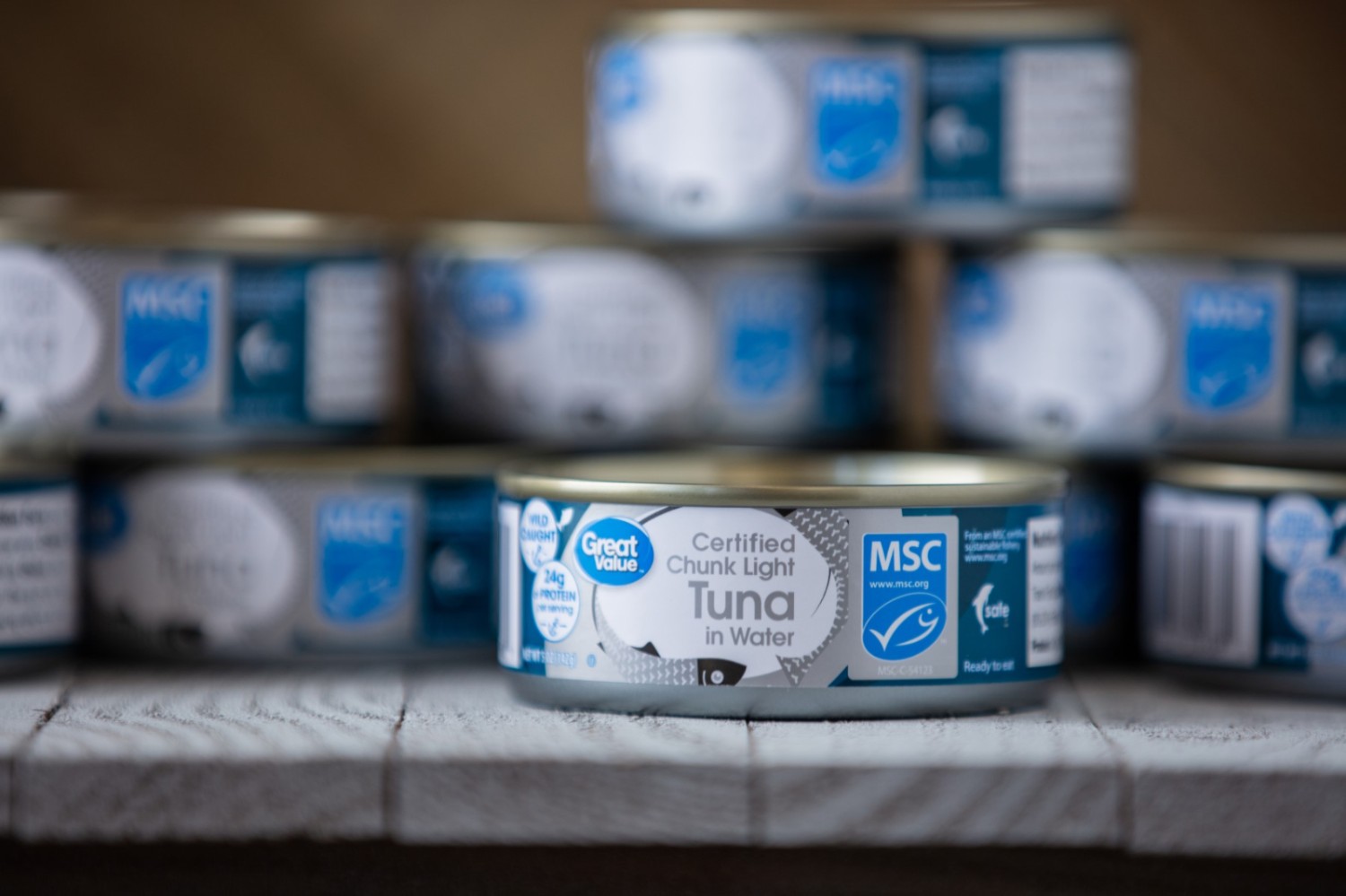June 8, 2020
Practicing more sustainable fishing hasn’t always been easy. But with a growing global consciousness surrounding sustainability, change is possible.
Walmart’s customers count on us to deliver affordable products in a way that helps preserve the planet, and we’re taking steps toward sourcing seafood more sustainably.
As of July 2020, achieving a key aspect of our original goal years in advance, Walmart is moving to source its U.S. stores Great Value canned tuna as either Marine Stewardship Council (MSC)-certified or, based on supplier reports, from a time-bound Fishery Improvement Project (FIP) actively working toward certification.
The MSC Fisheries Standard has three core principles every fishery must meet: sustainable fish stocks, minimal environmental impact and effective fisheries management.
Why It Matters
While seafood remains an important source of protein and income for people around the world, according to the United Nations, one third of global fisheries have been fished beyond sustainable limits.
Advanced action could help change that narrative, though, and lead to a better future.
“With a clear signal from leadership, our team has invested in research to help us better understand the value chain of tuna and ask the question, ‘What’s the right way to do this?’” said Sean Reber, who leads Walmart’s global sourcing team on direct import programs for packaged food.
And we know Walmart can’t do it alone. Sourcing seafood more sustainably requires greater effort on the part of suppliers and others toward the goal of reducing overfishing, eliminating bycatch and supporting healthier oceans.
Walmart buyers have been hard at work collaborating with Great Value tuna suppliers to source canned tuna in our U.S. stores as MSC-certified or, based on supplier reports, from an FIP actively working toward certification with definitive goals, measurable metrics and time-bound milestones.
“Making sure affordable, high-quality tuna that meets these requirements, makes it all the way to the aisle is a very complex process,” said Jessica Baldini, buyer for Walmart U.S. shelf-stable tuna. “It takes alignment and collaboration with internal leadership and external stakeholders – so there are a lot of people who have to be on board with the idea that ‘sustainability is what Walmart stands for.’”
Leading the Charge
This milestone could serve as a first step to influence global practices around sustainable seafood, with Great Value canned tuna setting a roadmap for other brands to show how they can be part of creating positive change.
And part of driving change is expecting accountability, which is why Walmart asks suppliers to report their progress using the Seafood Metrics System, managed by the Sustainable Fisheries Partnership (SFP). This system helps measure and track supplier performance on sustainable sourcing.
“To help identify areas for improvement in aligning sourcing with sustainability policies and goals, SFP works with Walmart to collect information on the sources of their seafood supply. Building continuous improvement across seafood supply chains can drive much-needed progress in fishery management and production around the world,” said Kathryn Novak, Global Markets Director at SFP.
The Future of Sustainable Fishing
With Walmart’s global reach, we have a role to play in accelerating more sustainable fishing practices. And we are committed to creating a better, more sustainable supply chain for tuna in collaboration with key allies.
While meeting this Great Value canned tuna goal is an important step, we’re aiming to do the same for all of Walmart’s shelf-stable tuna assortment by 2025.
“When Walmart says, ‘we’re committed to buying sustainable tuna,’ it sends a message loud and clear to the fishing vessels, to the captains and to the industry at large,” added Reber.




